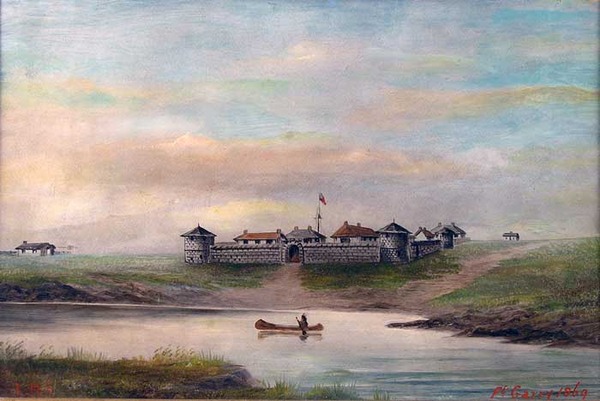- From the Red River Settlement to Manitoba (1812—70)
- Maps
- The Earl of Selkirk: The Colony’s Founder
- An Arduous Task, Marked by a Private War (1812—21)
- The Métis
- Indigenous Peoples
- Colonial Administration
- Maintaining Order and the Colony’s Defence
- Of Fur and Wheat: Subsistence and the Economy
- From Canoes to Railways: Transportation
- Life in Red River
- Missions and Religious Life
- Education, Health, and Social Assistance
- Arts and Culture
- The Press
- Intellectual and Scientific Life
- Winnipeg: The Emergence of an Urban Core
- Debating the Status of the Colony (1850—70)
- The Red River Rebellion and the Creation of Manitoba, 1869—70
- Suggested Readings on the Métis
Debating the Status of the Colony (1850–70)

Source: Link
During the 1850s and 1860s, debates on the future of Red River were as animated in the colony as they were in the Province of Canada, and then in the Dominion of Canada, as related in the biography of Louis RIEL:
“Riel found many changes on his return [in 1868]. Religious antipathies had become a notable feature of the settlement. At the same time the political climate was both uncertain and volatile. The settlement, part of the Rupert’s Land held by the [Hudson’s Bay Company], was still administered by a governor and the Council of Assiniboia, established by the HBC. The need for a new constitutional arrangement was acknowledged, but the issue was far from settled. Moreover, the old inhabitants now recognized that although their settlement was still isolated, it was the object of expansionist aspirations on the part of both the United States and Canada.”
Lawyer, politician, and United States treasury agent Enos STUTSMAN supported the integration of the colony into the United States:
“During the Red River disturbances of 1869 and 1870 he was one of a group of Americans at Pembina and Fort Garry (Winnipeg) who were actively promoting the annexation of the Red River Settlement to the United States. It has been suggested by Professor W. L. Morton that his intrigues were directed towards obtaining American intervention in the disturbances and the establishment of a military post at Pembina from which he would benefit as a result of his land speculations in the area. Alexander
The following lists of biographies can be consulted to learn more about the debates taking place between 1850 and 1870 over the future of the colony:





